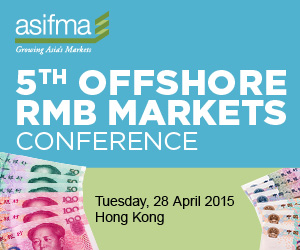Korea
Disclosure Requirements
Share holdings may be required to be disclosed by the beneficial owner, particularly when holdings reach or exceed prescribed disclosure limits. Investors must ensure that they comply in full by reporting such holdings to the appropriate organizations for this market, within the time-frame required. If you have any questions regarding this issue we encourage you to consult
your legal counsel.
Failure to comply with reporting requirements may lead to penalties and/or other sanctions.
The FSS tracks foreign investment ownership at Investment Registration Certificate (IRC) level. When the holdings of an IRC holder reaches 5% or more of a listed company, they are required to submit a disclosure report to the regulator within five days of the acquisition of a holding. In compliance with the provisions article 200-2 and 188 of the Securities & Exchange Law, investors are required to file a disclosure report for a holding of 5% and 10% and thereafter, any increase or decrease of 1% or more must be reported to the FSS and KSE/KOSDAQ.
Buy-Ins
Mandatory buy-in on SD+2 has been abolished in the market. However, failed trades can be subject to buy-ins and sell-outs on SD+2 at the discretion of the broker facing the failed trade. The defaulting party is responsible for all costs.
According to the revision of regulation on Supervision of Securities Business in May 2004, the mandatory buy-in on S+2 for foreign investors has been liberalized. In case of a settlement delay due to the reasons pre-determined by securities companies (i.e. discrepancies in settlement instruction or overseas holiday), settlement can be delayed after S+2 at the securities companies’ discretion without any buy-in process. Securities companies will process the delayed transaction as per their internal fail trade escalation procedure. This relaxation applies to only qualified foreign institutional investors. As there is no standard period made in the announcement by the Financial Supervisory Service as to how long a trade can be outstanding, it will be entirely at the discretion of the counter-party broker facing the failed trade. However, it should be clearly understood that the broker is at liberty to enforce a buy-in on SD+2.
Compensation Fund
The KRX runs the Joint Compensation Fund to compensate investors who suffer a loss due to broker fraud or default. If the fund falls below KRW100 billion, then contributions from members recommence to top up the fund. Members deposit 1/100,000 of the value of their trades until the maximum KRW100 billion fund balance is reached. If the funds available are insufficient to cover a compensation claim, the KRX will make up the difference.
Members must also deposit fidelity guaranty money, and the amount up to KRW100 billion, is determined by the KRX board. If a member fails to fulfill its obligation arising from a securities transaction, the KRX may use the member’s fidelity guaranty money to compensate any damages.
Anti-Money Laundering
Documentation and Account Opening Requirements: Know Your Customer and Customer Due Diligence Profile (CDDP) Form for Money Laundering is completed by the Relationship Manager.
Required documentation from the clients’ side varies depending on the type of company and its risk level.
Local “Know Your Customer” requirements have been strengthened in the market and additional information such as the IRC holder’s representative name and contact number will have to be provided upon IRC application / account opening in Korea.




